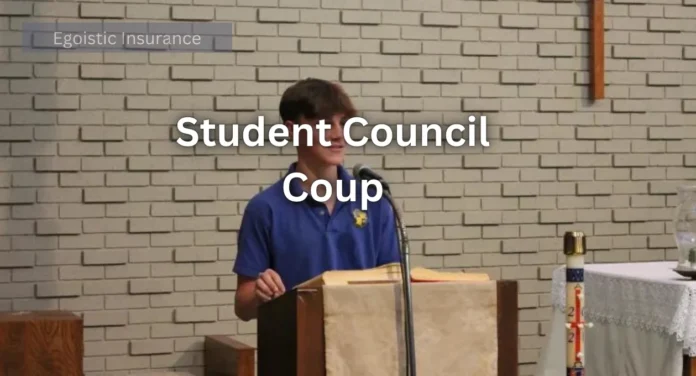In schools across the globe, student councils play a crucial role in shaping the student experience, organizing events, and serving as a voice for their peers. Enter the concept of a “student council coup.” This term might sound like something out of a political thriller, but it refers to a real and often surprising phenomenon in student governance.
A student council coup typically occurs when a faction within the council, dissatisfied with the direction or leadership, orchestrates a shift in power. This can involve strategic alliances, garnering support from the student body, and leveraging social media to rally followers. The motivations behind such moves can vary—some may seek to introduce new ideas or represent underrepresented groups, while others might simply be driven by personal ambitions.
The implications of a coup can be significant, affecting the overall dynamics within the school community. Tensions may rise among students, and the original council members may feel undermined or alienated. However, if handled effectively, a transition of power can also lead to revitalisation and innovation within the student council, fostering a more engaged and responsive governance structure that truly reflects the voice of the student body.
What is a Student Council Coup?
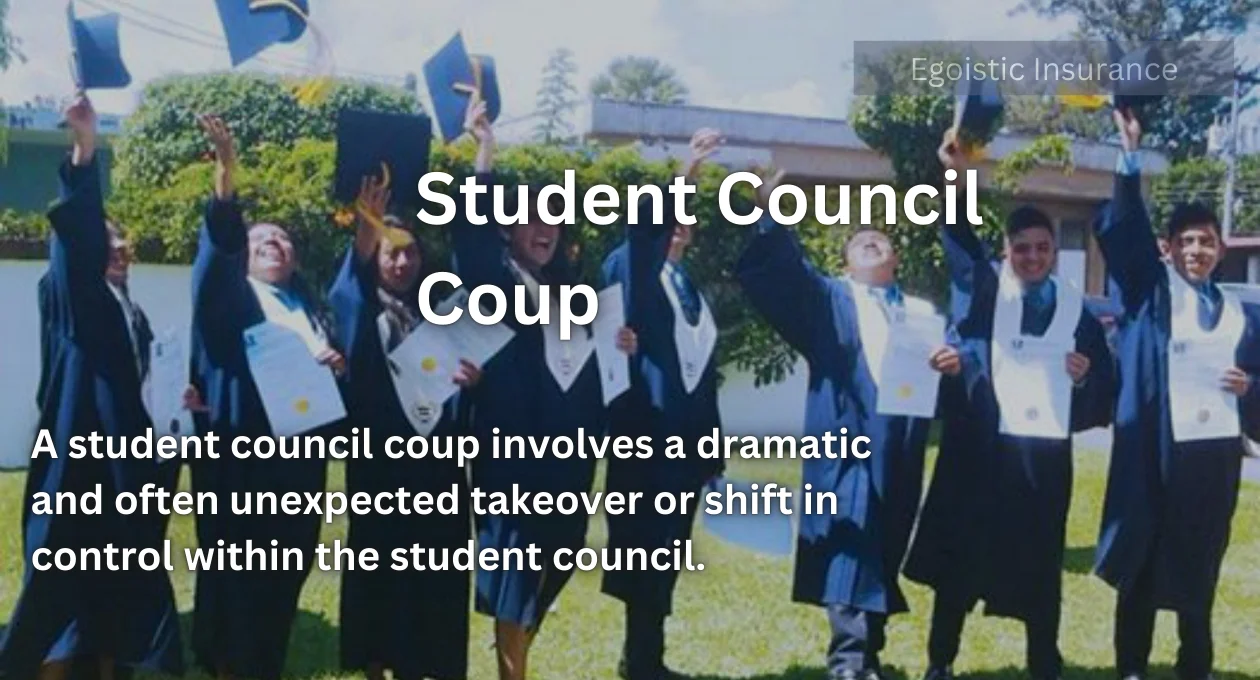
A student council coup involves a dramatic and often unexpected takeover or shift in control within the student council. Just like in national or corporate politics, a coup in this context typically involves a group of students ousting the current council members and seizing control. The reasons for such a dramatic shift can vary widely, but they often include dissatisfaction with current leadership, a desire for change, or internal conflicts within the council.
The process leading up to a student council coup often involves a clandestine buildup of discontent. Students may begin to voice their frustrations in informal settings, discussing perceived shortcomings in leadership or pushing for new initiatives that they feel have been ignored. As these conversations gain momentum, an informal group may take shape, united by a common goal of change. The use of social media can facilitate this mobilization, allowing for a swift spread of ideas and plans among the student body.
Once the groundwork has been laid, the coup can unfold quickly. Those in the faction wishing to seize control may initiate a campaign to secure votes from their peers, leveraging both charisma and persuasive arguments to rally support. The atmosphere can become charged, as alliances form and tensions escalate among council members. Ultimately, the success of a coup hinges on the faction’s ability to present a compelling vision for the future that resonates with the student body, effectively drawing support away from established leaders.
How Does a Student Council Coup Occur?
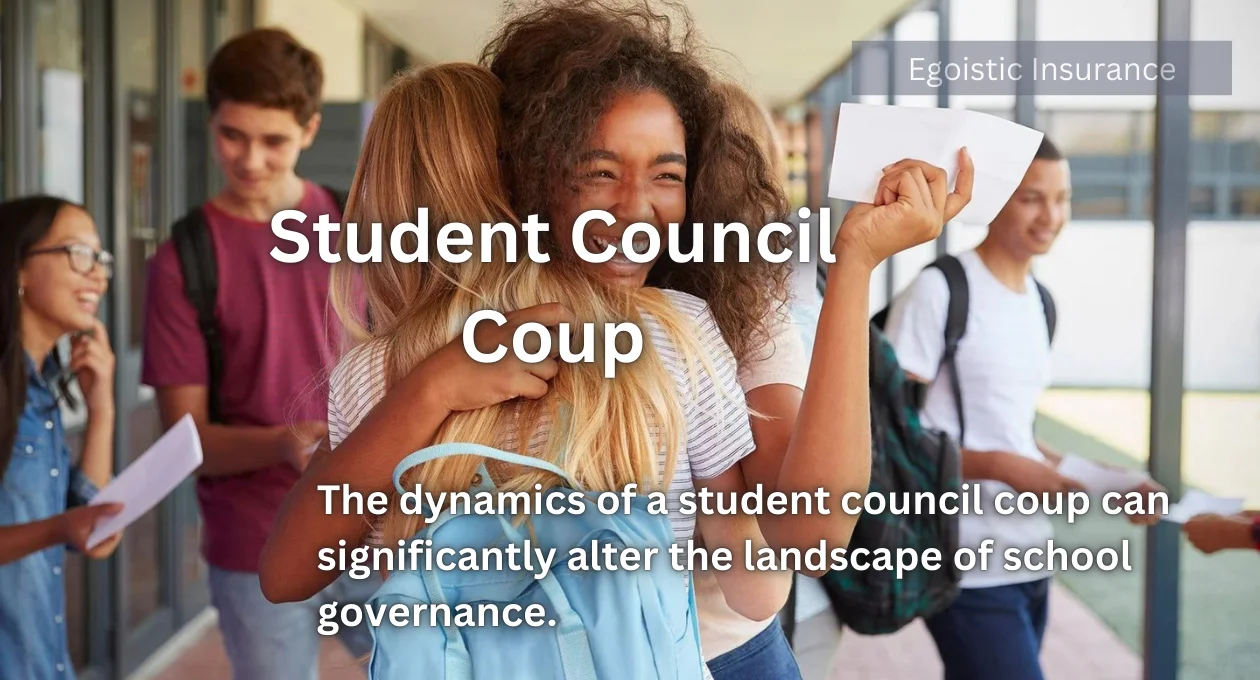
The dynamics of a student council coup can significantly alter the landscape of school governance. After the coup, the newly formed council may implement changes that better reflect the interests and needs of the student body, addressing issues that were previously overlooked. However, this transformation is not without its challenges, including the need to rebuild trust between factions and ensure that all voices are heard moving forward. Establishing a collaborative environment becomes essential for fostering unity and minimizing further dissent.
In the aftermath of a coup, the original council may face the difficult task of determining their next steps. They must navigate feelings of resentment and alienation while considering how to transform their governance approach. Open dialogue with the new leaders is crucial for reconciliation, as both sides learn from the experience. Ultimately, both councils can benefit from the lessons learned, leading to a more robust and resilient form of student leadership that upholds the values of democracy and representation.
Understanding the dynamics of a student council coup requires a look at several key factors:
- Dissatisfaction with Leadership: Sometimes, the student body may feel that the current council is not effectively representing their interests or failing to meet their expectations. This dissatisfaction can lead to organized efforts to replace the current leaders with those who promise to bring about change.
- Organized Opposition: A coup often involves a group of students who organize and campaign against the existing council. This group might leverage student discontent to gain support and ultimately challenge the current leadership through various means, such as campaigns, debates, or even protests.
- Election Process: In many cases, a coup may involve strategic maneuvering during the election process. This could mean running for positions in a way that undermines the current council’s legitimacy or winning key roles that shift the balance of power.
- Internal Conflict: Sometimes, a coup can stem from internal strife within the student council itself. Rival factions within the council may vie for control, leading to a dramatic realignment of power.
Notable Examples of Student Council Coups
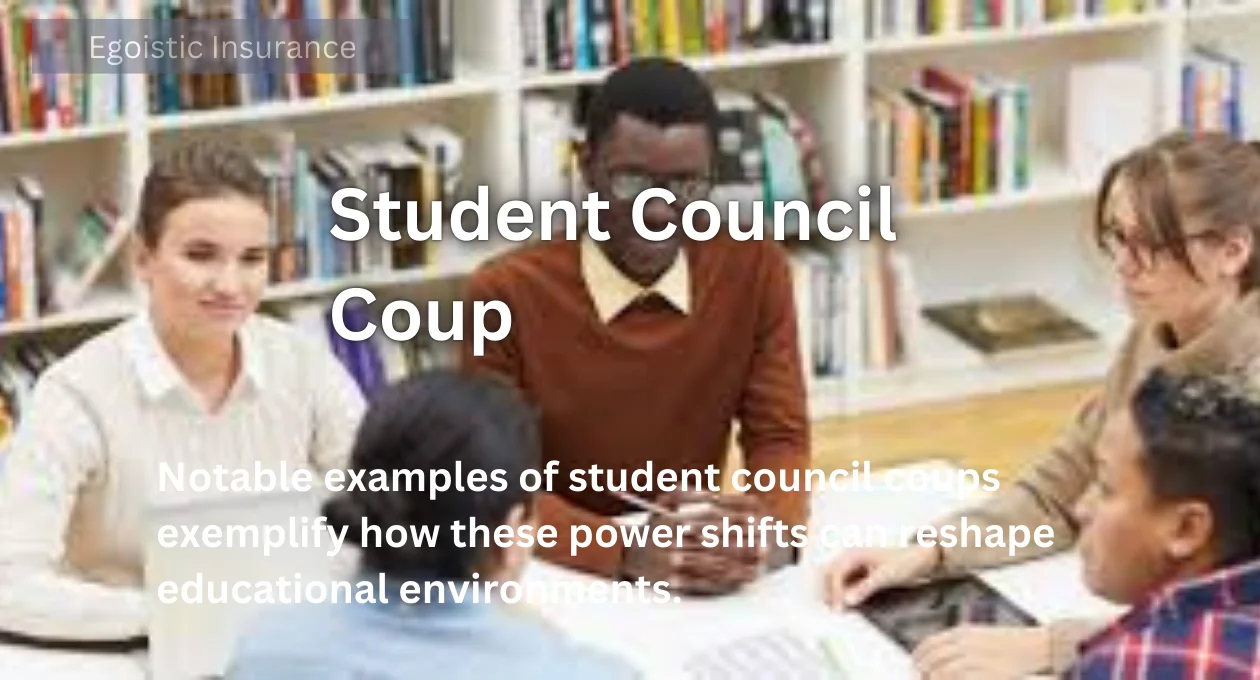
Notable examples of student council coups exemplify how these power shifts can reshape educational environments. One such instance occurred at a prominent high school where a group of students dissatisfied with the existing leadership orchestrated a coup during election season. They leveraged social media campaigns to mobilise support, articulating a clear vision that resonated with their peers. This grassroots effort not only resulted in a new student council but also ignited increased student engagement and interest in governance.
Another compelling case unfolded at a university where an underrepresented group rallied to create a fairer system within the student council. Fueled by a sense of injustice and the desire for equal representation, they strategically challenged the status quo. Their success not only altered the council’s composition but also initiated lasting changes in policy, ensuring that diverse voices would be heard moving forward. Through these examples, the impact of student council coups on the community’s governance becomes abundantly clear.
While student council coups might not make headlines like national political upheavals, there are notable examples that illustrate the phenomenon:
- High School Elections: In many high schools, elections can become highly competitive and contentious. Instances where one group of students mobilizes to unseat an incumbent council or president, often through aggressive campaigning and strategic alliances, can be considered a coup.
- Student Protests: Occasionally, a student council coup may arise from a broader student protest or movement. If a significant portion of the student body is unhappy with the council’s performance, they may rally around a new group or leader, effectively staging a coup through mass support.
The Implications of a Student Council Coup
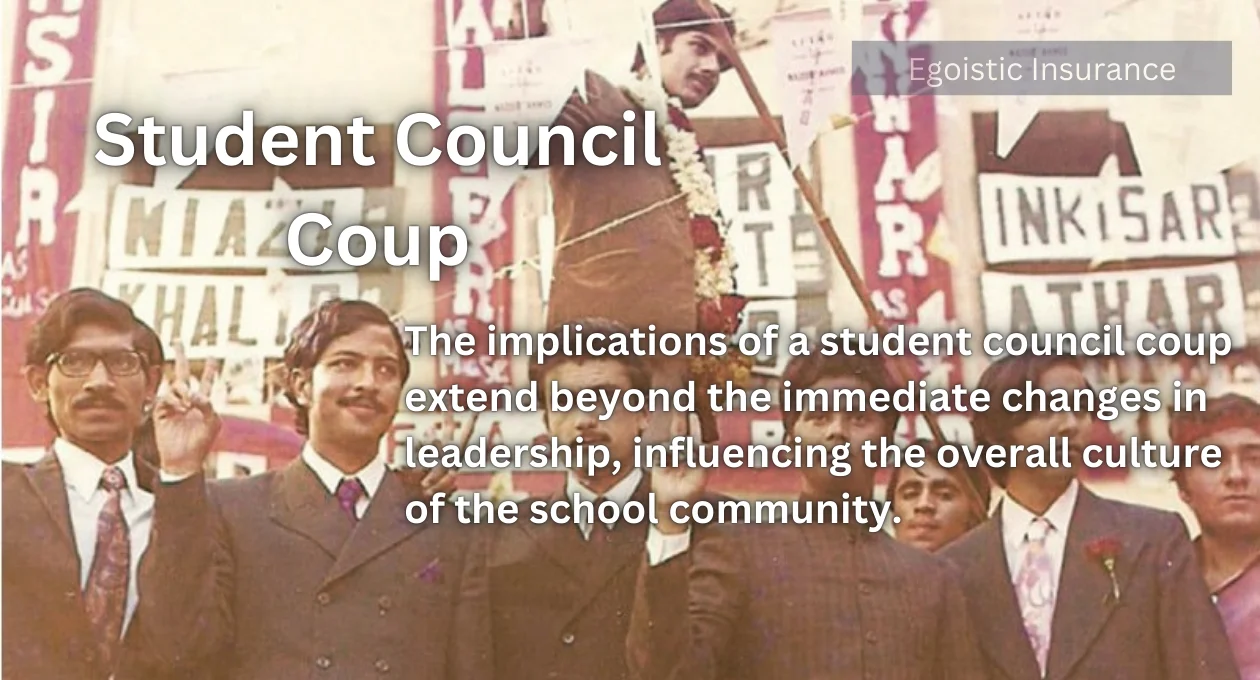
The implications of a student council coup extend beyond the immediate changes in leadership, influencing the overall culture of the school community. When a coup occurs, it can empower students by fostering an environment where their voices are respected and valued. This shift has the potential to drive greater participation in school activities and governance, as more students feel encouraged to engage in discussions and decision-making processes that affect them directly.
However, the aftermath of such power struggles can also lead to divisions within the student body. Resentment from those who supported the previous leadership may linger, creating an atmosphere of discord that can hinder collaborative efforts. It is crucial for both the new and old councils to prioritise communication, transparency, and inclusivity in their governance to mend relationships and cultivate a unified school environment where every student feels they have a stake in their leadership.
A student council coup can have several consequences, both positive and negative:
- Positive Outcomes: A successful coup can lead to rejuvenation within the council, bringing new ideas and energy. It can also address and rectify issues that may have been neglected by the previous leadership.
- Negative Outcomes: On the flip side, coups can lead to division and conflict among the student body. They may also disrupt ongoing projects and initiatives, creating a period of instability.
How to Prevent or Manage a Student Council Coup
Preventing or managing a student council coup requires proactive measures to foster a positive and inclusive environment. Establishing open channels of communication between the council and the student body can significantly reduce feelings of dissatisfaction. Regular feedback sessions and suggestion boxes allow students to voice their concerns, ensuring their perspectives are acknowledged and addressed. Educating students about the importance of democratic processes and encouraging constructive engagement can also mitigate the risk of organized opposition forming.
In addition, fostering strong relationships within the student council is essential. Councils should regularly evaluate their performance and the impact of their decisions on the student body, promoting transparency in their actions. Team-building activities and joint projects can strengthen camaraderie among council members, reducing the likelihood of internal conflict. By focusing on collaboration and shared goals, student councils can create a resilient governance structure that limits the potential for coups.
To prevent or effectively manage a student council coup, it’s important for councils and schools to focus on:
Open Communication: Maintaining transparent communication between the council and the student body can help address issues before they escalate into a coup.
Effective Leadership: Councils should strive to be responsive and effective in their roles to minimize dissatisfaction among students.
Conflict Resolution: Addressing internal conflicts promptly can help avoid the emergence of rival factions that could lead to a coup.
The Role of Mentorship in Student Council Governance
Mentorship plays a crucial role in enhancing student council governance, providing guidance and support to emerging leaders. Experienced mentors can share their insights on effective leadership practices, helping students navigate the complexities of their roles. This relationship fosters confidence and encourages members to voice their ideas, driving innovation and engagement within the council. By understanding the dynamics of teamwork and communication, mentees can better address challenges and work towards cohesive governance.
Furthermore, mentorship can establish a culture of continuity and shared knowledge within the student council. As older members transition out, their wisdom can be passed down to new representatives, ensuring that valuable lessons learned are not lost. This framework nurtures a supportive environment where every member feels empowered to contribute. Ultimately, by prioritising mentorship, student councils can cultivate a stronger, more resilient leadership pipeline that benefits the entire student community.
FAQs
Q1: What is a student council coup?
A student council coup refers to a situation where a group of students mobilizes to unseat the existing leadership of the student council, often through strategic campaigning and collective action.
Q2: Why do coups happen in student councils?
Coups can occur due to dissatisfaction with the current leadership, perceived inequities in representation, or a desire for new ideas and change. Students may feel their voices are not being heard, prompting them to rally for different leadership.
Q3: What are the potential effects of a student council coup?
The effects can vary significantly; positive outcomes may include renewed enthusiasm and representation, while negative effects might involve divisions within the student body and disruption of ongoing initiatives.
Q4: How can student councils prevent coups?
Proactive measures such as open communication, regular feedback, effective leadership, and conflict resolution strategies can help foster a positive environment and address concerns before they escalate into organized opposition.
Q5: What should new councils do after a coup?
New councils should prioritize communication, inclusivity, and transparency to rebuild trust and unity among the student body. It is essential to engage with those who supported the previous leadership to ensure diverse perspectives are valued in the new governance structure.
Conclusion
A student council coup, while dramatic, is a significant event in the realm of student governance. It highlights the importance of leadership, representation, and the dynamic nature of student politics. Whether as a response to dissatisfaction or as a strategic maneuver, understanding the mechanics and implications of a student council coup can provide valuable insights into how student organizations function and evolve.
The role of student councils extends beyond mere governance; they are instrumental in shaping a sense of community and belonging among students. By empowering individuals to participate actively in decision-making processes, councils help cultivate leadership skills and civic responsibility. This engagement fosters a culture of accountability, where students learn the importance of their contributions. Ultimately, a well-functioning council can produce lasting positive effects on both personal development and the overall school environment.
For more interesting information keep visiting egoisticinsurance.online


